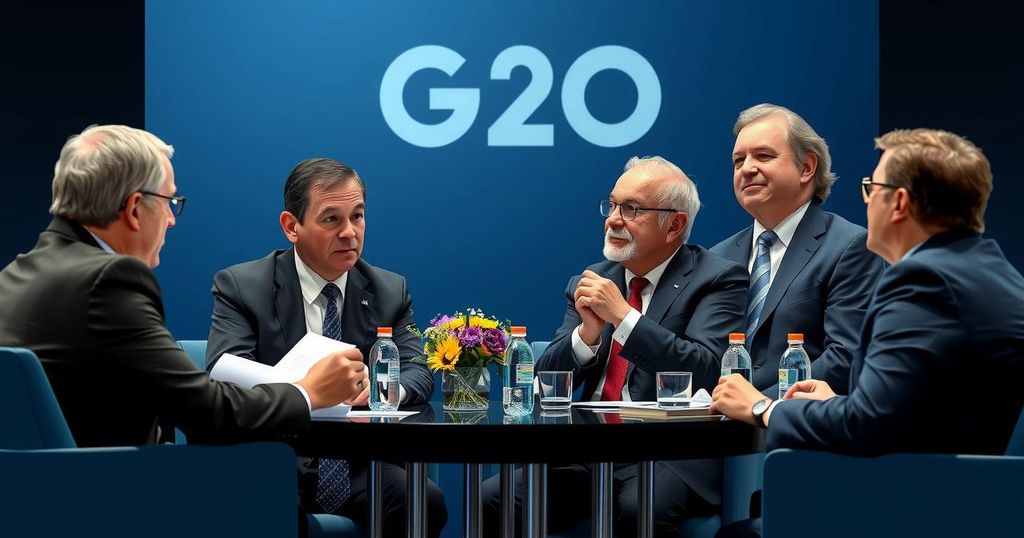G20 Summit in Brazil Addresses Poverty and Climate Change Challenges

Leaders of the G20 nations are gathering in Rio de Janeiro to discuss critical global issues, including poverty and climate change. Key attendees include Prime Minister Ishiba, President Biden, and President Xi. The summit aims to address hunger, sustainable development, and support for forest conservation, with a focus on reaching a consensus despite differing positions among member states. President Lula emphasized the need for rich nations to aid in forest protection, highlighting the urgency of these discussions as they coincide with the upcoming US presidential transition.
The G20 summit is poised to commence in Rio de Janeiro, Brazil, from Monday, gathering leaders from the world’s major economies to deliberate on pressing global challenges, notably poverty and climate change. Key participants include Japan’s Prime Minister Shigeru Ishiba, US President Joe Biden, and Chinese President Xi Jinping, who recently concluded discussions at the APEC summit in Lima, Peru. The summit aims to formulate actionable strategies to mitigate hunger and poverty while fostering sustainable development practices amid the backdrop of longstanding issues faced by developing and emerging nations. Brazilian President Luiz Inacio Lula da Silva, the summit’s host, underscored the urgency of advocating for the Amazon, stating, “it is time to tell the world what the Amazon wants,” and emphasized the necessity for affluent nations to financially support forest conservation efforts. As delegates gather, the focus remains on achieving a consensus on how to effectively tackle these shared global concerns despite differing perspectives among member states. Given the imminent inauguration of President Donald Trump in the United States, whose stance on climate initiatives has been questioned, the summit’s outcomes are being closely monitored for their potential impact on international climate commitments.
The G20, comprising the world’s largest economies, plays a pivotal role in addressing major global issues such as poverty and climate change. This summit, taking place in Brazil, highlights ongoing disparities faced by developing nations concerning economic stability and environmental sustainability. The discussions are particularly significant as they set the agenda for collaborative actions against hunger and climate degradation, while also navigating the complex dynamics of global geopolitics, including the divergent policies of member nations regarding climate change.
In conclusion, the G20 summit in Brazil represents a critical opportunity for global leaders to address some of the most urgent challenges of our time, including poverty and climate change. The discussions aim to establish a collaborative framework for sustainable development and environmental protection, although significant hurdles remain. The forthcoming dialogue reflects a shared responsibility among nations, particularly in light of new leadership in the United States, which may influence the direction and commitment to these vital issues.
Original Source: www3.nhk.or.jp







